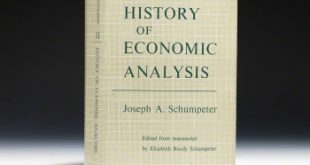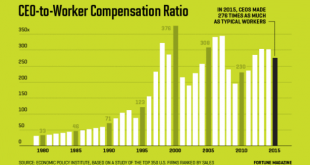from Peter Radford Jamie Galbraith’s conclusion in his essay at Dissent magazine: “The progressive alternative to an economic program of reckless stimulus and real-estate capital gains is a program of full employment, fair wages, and broad investment in social, cultural, and environmental needs, backed by taxes that fall directly on rents, monopoly profits, and on inheritances, thus directly dismantling the dynastic oligarchy that has been running the United States, through both parties,...
Read More »Kevin Dean Baker’s Secret David Kettlewell improv chromatic harmonica B
Kevin Dean is a superb trumpet player and composer whose music actually meets that impossible standard of hauntingly beautiful. Here David plays an improv along with Kevin, this being the second version or B. David's book LOVE OF CHROMATIC HARMONICA...TECHNIQUES AND ADVICE FROM THE WORLD'S BEST! is in paperback and Kindle on Amazon. Enjoy David's Facebook Groups...LOVE OF CHROMATIC HARMONICA...CHROMATIC HARMONICA REPAIR...CHROMATIC HARMONICA CUSTOMIZATION...and BEAUTIFUL MUSIC ON CHROMATIC...
Read More »Positional analysis: what it is and why economists need it
from Peter Söderbaum, Judy Brown and Małgorzata Dereniowska and WEA Commentaries What would an alternative economics and economy look like for a sustainable future? As with any normative vision, such as that of a sustainable economy and society, a variety of responses and perspectives can be legitimately sought. Out of those, for many economists, only the perspectives that result in outcomes that are (potentially) Pareto improvements are economically meaningful. But sustainability and...
Read More »The Ricardian Vice (II)
from Lars Syll The completeness of the Ricardian victory is something of a curiosity and a mystery. It must have been due to a complex of suitabilities in the doctrine to the environment into which it was projected. That it reached conclusions quite different from what the ordinary uninstructed person would expect, added, I suppose, to its intellectual prestige. That its teaching, translated into practice, was austere and often unpalatable, lent it virtue. That it was adapted to carry a...
Read More »People in France and Germany work much less than in the U.S
from Dean Baker The NYT had an article reporting on how the Pew Research Center had discovered work done by the Economic Policy Institute for a quarter century (the middle class is hurting). At one point the piece compares the United States with France and Germany: “The United States, including the middle class, has a higher median income than nearly all of Europe, even if the Continent is catching up. The median household income in the United States was $52,941 after taxes in 2010,...
Read More »Monopoly Power: Is it time to bring back anti-trust?
from Dean Baker There has been growing attention in recent years to the near monopolization of many sectors of the U.S. economy. For example, Google completely dominates the search engine market, while Facebook has an overwhelming presence in social media. Amazon controls close to 70 percent of book sales in the United States and an ever growing share of retail more generally. Microsoft remains by far the dominant force in computer operating system software. Recent research has found an...
Read More »The Ricardian Vice (I)
from Lars Syll Ricardo’s … interest was in the clear-cut result of direct, practical significance. In order to get this he cut that general system to pieces, bundled up as large parts of it as possible, and put them in cold storage — so that as many things as possible should be frozen and ‘given.’ He then piled one simplifying assumption upon another until, having really settled everything by theses assumptions, he was left with only a few aggregative variables between which, he set up...
Read More »Conspicuous productivity
from David Ruccio source First, it was conspicuous consumption. Then, it was conspicuous philanthropy. Now, apparently, it’s conspicuous productivity. According to Ben Tarnoff, the acquisition of insanely expensive commodities isn’t the only way that modern elites project power. More recently, another form of status display has emerged. In the new Gilded Age, identifying oneself as a member of the ruling class doesn’t just require conspicuous consumption. It requires conspicuous...
Read More »Discussing “Can we avoid another financial crisis?”
from WEA Commentaries My first book since Debunking Economics has just been released in the UK, and will come out in May in the USA. Can we avoid another financial crisis? is a brief (140 page, 25,000 word) explanation for the lay reader of how the 2008 crisis was caused by factors that mainstream economics ignores—fundamentally, the levels of private debt and credit-based demand—and why other countries that avoided a crisis in 2008 are likely to suffer a similar crisis in the near...
Read More »Deep warming
From: Larry Hamilton and Merijn Knibbe Following a twitter discussion between him and me about the question if the 2013-2015 warming of the first 700 meters of ocean was above trend or if 2016 was below trend, Larry Hamilton (@ichiloe) produced the next graph (which shows consistent and relentless warming not just of the surface of the earth but also of the first 700 meters of the oceans). These series are as far as I know measured in a totally independent way. ‘2017’ are partial data. We...
Read More » Real-World Economics Review
Real-World Economics Review






